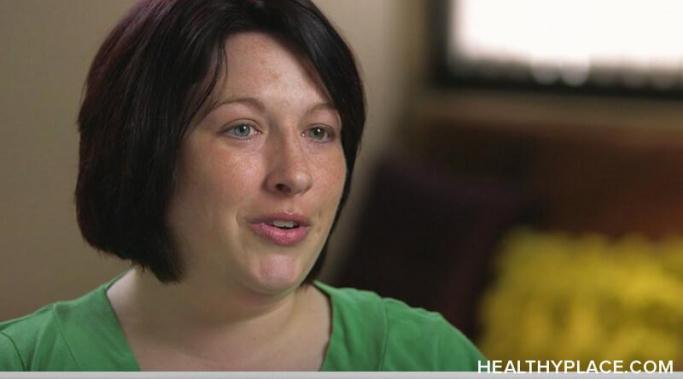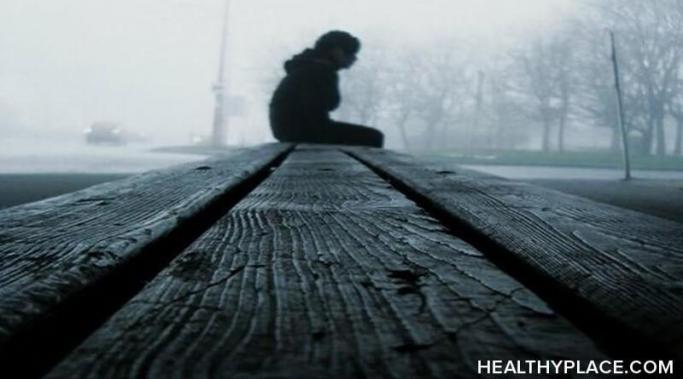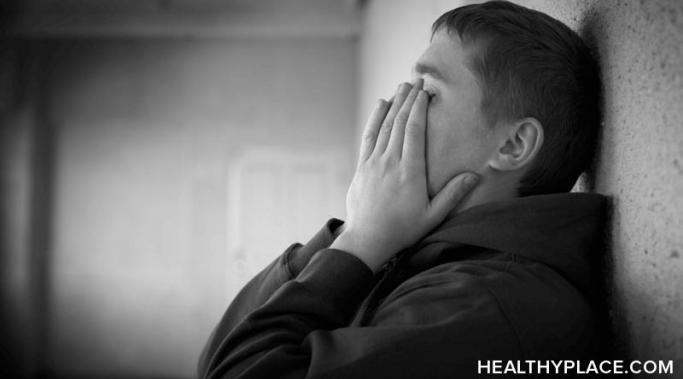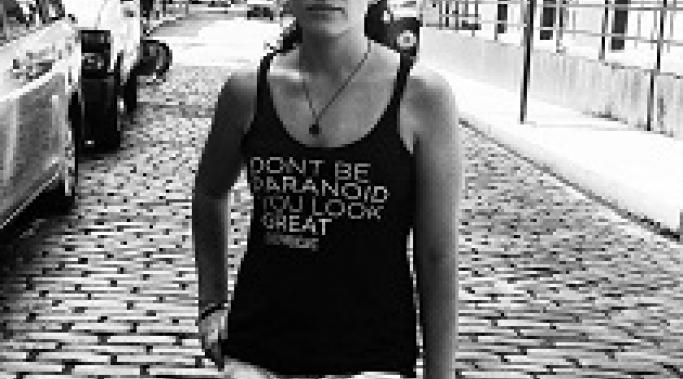My physical therapist, Marge, really surprised me by starting a conversation about mental health stigma on my last visit with her. I need to be in physical therapy because I’m recovering from double knee replacement surgery. Our conversations have revealed that she’s very anti-mental health stigma. Some people aren’t, so I just don’t discuss it with them. Physical therapy suddenly took on a whole new dimension.
Schizophrenia Stigma
My biggest fear as someone with schizophrenia is experiencing a prolonged period of psychosis, but I have other worries that I live with as well. Because of my anxiety disorder, fear and worry are regular visitors in my life. Most of my fears are centered around medical issues, the loss of my husband due to illness, a car accident, or a heart attack or stroke (I think of all the scary things). There is a type of fear separate from all the ones I have listed, though, but no less prevalent, and that fear has to do with judgment, stigma, and rejection. It mostly has to do with rejection.
Every few years, I search for movies and books I haven't read or seen that are either created by someone with schizophrenia or have a character who has schizophrenia. I love a good memoir written by someone with schizophrenia because, in most cases, the writer can tell about both good and bad days or hard times and times when things have been much smoother or better. It feels like that is a realistic view of schizophrenia (at least for me), and often, the author gives us some hope. After all, they are in a place with their illness where they can write and publish a book. Books and movies can show a realistic version of schizophrenia or not.
When I was a young woman, before my first psychotic episode, I was incredibly independent. I frequently traveled internationally to Egypt and Brazil to visit my parents, who worked overseas. I also took road trips from Seattle to as far as San Diego by myself. Those days of independence are long gone. As someone with a severe mental illness, I need to connect and rely on people more than I ever imagined, but though I have schizophrenia, I am not a burden.
Disclosing a schizophrenia diagnosis can be a daunting decision to make. At work, it can be helpful or harmful. In your personal life, it can be scary. But, disclosing schizophrenia at work can be a necessity. In the workplace, it can be the difference between getting the proper accommodations or not. The Americans with Disabilities Act will protect you at work. Disclosing will give you the rights you need to receive accommodations. It can be a weight off your shoulders. You can even be a resource for others with disabilities. Living with schizophrenia can help others to connect with you by allowing them to share their stories with you.
It's 3:00 a.m. and I can't sleep. I'm sitting in the commons area of an eerily quiet psychiatric hospitalization unit while I recover from a relatively severe psychotic break. I wasn't going to blog this week because, well, the obvious. On top of that, all I have is pen and paper, no Internet access. But my wife still managed to post this week despite taking me to the hospital and picking up the slack in my absence. It is good to emulate one's heroes and I can think of no greater hero than my wife. I just wish I were a little more like her. But I have to remember that psychiatric hospitalization does not denote weakness.
I was not surprised by my schizophrenia diagnosis. I realized that I was likely suffering from psychosis six weeks prior to my schizophrenia diagnosis when the symptoms of a patient alerted me to the nature of my own illness. I engaged in a bit of quick research on the subject and inadvertently ensnared myself in a psychotic delusion: I could not tell anyone that I was suffering from psychosis. In my mind, my employer and the government were closely monitoring my Internet history and would determine that I was a fraud. That was the first time I felt like a fraud. It wouldn't be the last.
Defining myself outside of mental illness is something I must do. Dealing with my schizoaffective disorder and generalized anxiety disorder can be a full-time job, but I am more than my mental illness symptoms. It's difficult to define myself outside of mental illness sometimes. Anxiety makes bathing difficult, cooking impossible (luckily, my husband Tom cooks for us), and I’m even afraid to go out in the rain. Through all of this, I try to weave other things into my life that define who I am beyond mental illness.
Ever since I was diagnosed with schizophrenia and then schizoaffective disorder, mental health advocacy has become a very important cause for me. One of the ways I advocate for people with mental illnesses like schizophrenia and schizoaffective disorder is by participating in the annual National Alliance on Mental Illness (NAMI) walk in Chicago, a beautiful lakefront trek in the company of thousands of people.
Schizophrenia or schizoaffective disorder doesn't have to stop you from having a business. Schizophrenic.NYC. founder Michelle Hammer, a native New Yorker, chatted with me about her business and how it helps homeless people with mental illnesses like schizophrenia and schizoaffective disorder in New York City.









